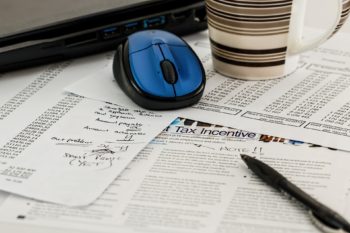
If you’re considering Chapter 7 or Chapter 13 bankruptcy, filing taxes during this time can be confusing.
Under Chapter 7, your bankruptcy will discharge your unsecured debt, including medical debt, credit card debt, and maybe even income tax debt. Meanwhile, under Chapter 13, you’ll commit to a payment plan for 3 to 5 years to a bankruptcy court trustee who then pays off creditors, including the IRS and state income taxing agencies.
Even if you don’t have income tax debt, filing your taxes during bankruptcy is important. United States Bankruptcy Code requires debtors’ filing of federal tax returns from the most recent tax year ending immediately before the commencement of a bankruptcy case. 11 U.S. Code § 521. Additionally, tax returns for all taxable periods from the previous four years could be brought up during a 341(a) meeting. 11 U.S. Code § 1308.
The timing of a bankruptcy filing also is crucial, if you are worried about what may happen to your potential tax refund.
If you’re considering filing for bankruptcy, you’ll want to avoid making these big tax mistakes.
1. Don’t Give Up Your Refund to the Government Until After Filing
If you’ve received a large refund, it’s generally not a good idea to let the government hold onto it. In the event that you’re anticipating a large refund, you’ll have to protect it through your bankruptcy; some portions of your refund may be eligible to be spent on “reasonable and necessary” expenses, like secured debt payments, child care, or health care. Talk to your attorney if you’re in doubt.
2. Don’t Hide Your Money or Transfer Property to “Protect it”
Not disclosing money while in bankruptcy is a violation of federal law and is considered perjury. Prison isn’t worth trying to disguise how much stuff you have. There are numerous ways to protect money that’s been saved, and an experienced bankruptcy attorney will help you do exactly that.
People often think that if property isn’t in their name, the bankruptcy court suddenly can’t touch it — this is not the case. The bankruptcy process will very thoroughly investigate your assets, and if it’s found that you’ve transferred property in attempt to “protect” or “hide” it, you could find yourself in more trouble than it’s worth. The court will void the transfer and move the property back to your name, and your bankruptcy may be dismissed altogether.
Furthermore, you’ll have to refile and pay all the refiling and court fees, and you may no longer enjoy the benefits of the automatic stay. Disclose these assets to your attorney and they will help you protect your property legally!
3. Don’t Pay Back Relatives
When you owe a relative money, most people feel like there is a moral obligation to get it paid back to them as soon as possible; however, you may just want to think twice about that. If you pay a relative (or an “insider,” in legal speak) with money from a tax refund, you may leave them in a position to have the money taken back from them by the bankruptcy trustee.
Payments to “insiders” are part of the preferential transfer period one year before you file for bankruptcy. The bankruptcy trustee will investigate any financial activity during this period, and if you’ve paid off a family member any amount over $600, it can be included in your bankruptcy estate. While paying back a creditor, family or not, isn’t illegal, it is if you fail to disclose a payment of more than $600 during the preferential transfer period (which is 90 days for non-family members).
If you owe money to a relative, make sure to talk with your attorney before paying them back and getting them into a fight with the bankruptcy trustee.
4. Don’t Pay Unsecured Creditors over $600
Bankruptcy requires you to disclose any payments over $600 made in the last 90 days prior to filing, and the trustee can recapture those payments and review them. If you’re thinking about paying off some debt, make sure to prioritize. Secured debts — those linked to a piece of property, like car and mortgage payments — aren’t discharged in a bankruptcy, but you may no longer be personally liable for them.
Medical and credit card debt is unsecured debt that you can get rid of in bankruptcy — just be careful not to pay off your secured debt with unsecured debt.
Additionally, it’s tempting to use a tax return to pay off smaller debts, but hold off and talk with your attorney first. No sense throwing that money away.
5. Don’t Buy Any Vacations or Luxury Goods
If you’re considering or are in the process of filing for bankruptcy, the last thing you’ll want to do is invest your money in lavish vacations or luxury goods. The cars and beaches can wait, and such purchases could be held against you. Tax refunds are usually the biggest sum of money a lot of people get during the year; fight the temptation and hold onto it for now.
Get Help from an Experienced Bankruptcy Attorney
One of the most efficient ways to use your tax refund is to get your bankruptcy fees paid to file your case. We’ll handle all the details of your case and specifics needed to keep your property so you can focus on taking care of yourself during this tough time. Get in touch with Borowitz & Clark for a free consultation.
See also:
• Income Tax Obligations in California
• California Tax Debt and Bankruptcy: Will Chapter 7 End My Tax Trouble?
